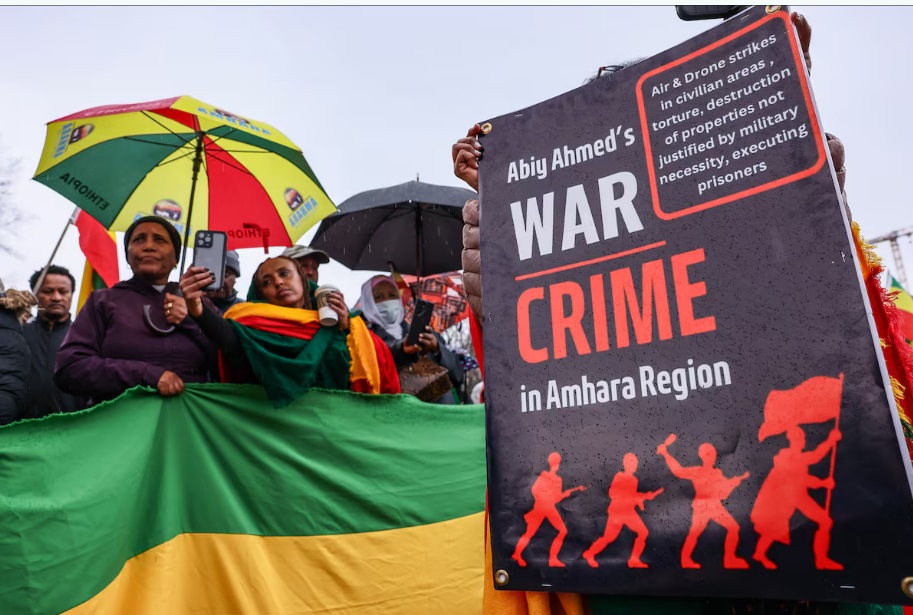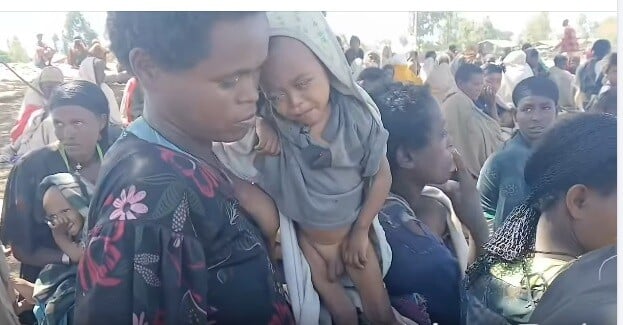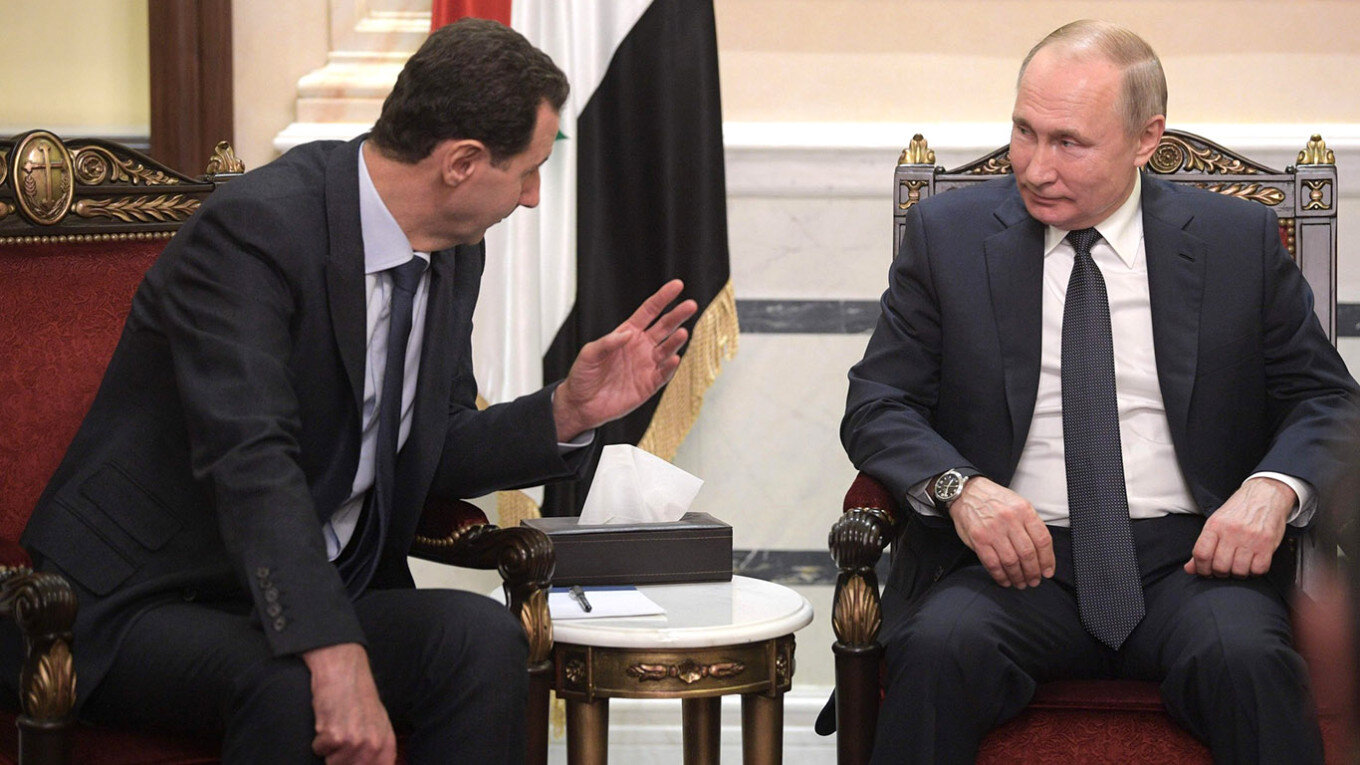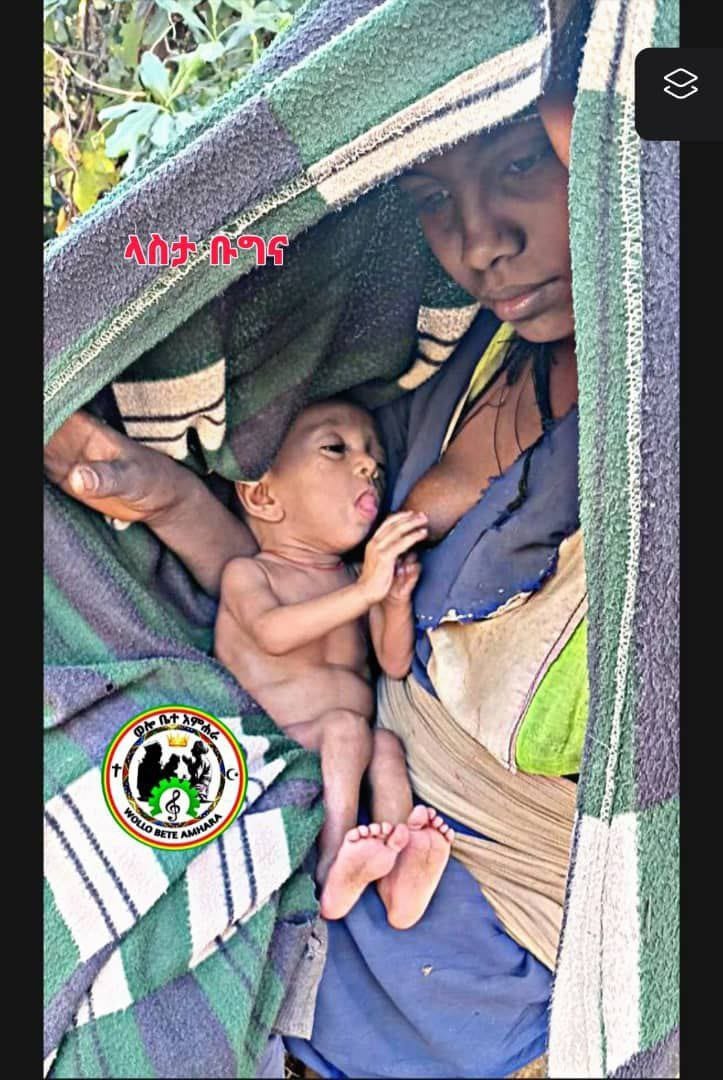Mengistu Musie (PhD)
Mmusie2@gmail.com
The self-defeatist diaspora is embroiled in conflict, as if they are on a battlefield, using accurate ammunition against what they perceive to be true enemies of the people. However, the reasons behind this infighting are something other than what we should involve ourselves with. A notable observation is that many of these individuals, who operate under pseudonyms, reside in the United States, with a smaller number scattered across European cities. These same abstractionists and a few YouTubers are intent on crowning a single individual as a leader. Ironically, they do not genuinely believe in this person’s leadership qualities but are more interested in being perceived as kingmakers.
In stark contrast, the real fighters back in Ethiopia, specifically the greatest generation of the Amhara militants of the Amhara Fano, are facing true enemies in real-time on the battlefield. This generation is critically struggling to defend their neighborhoods and fight for their people’s future. Unlike the diaspora, who are embroiled in theoretical and ideological battles from afar, the Amhara Fano militants are dealing with tangible threats and making significant sacrifices on the ground.
The Amhara Fano represents a resilient and determined force within Ethiopia. Their commitment to their cause is unwavering, and a deep-seated sense of duty and patriotism drives their actions. They are not distracted by the political posturing, and power plays preoccupying the diaspora.
Instead, they are focused on the immediate and pressing challenges they face, putting their lives on the line for the sake of their community. Recognizing the disparity between the diaspora’s virtual skirmishes and Ethiopia’s real, life-and-death struggles is essential. The diaspora’s self-defeatist attitudes and internal conflicts weaken their collective influence and divert attention from critical issues. Meanwhile, the Amhara Fano remains steadfast, undeterred by external distractions, and resolute in their mission.
The dissonance between the two groups highlights a broader issue of disconnection and misalignment of priorities. While the diaspora engages in intellectual and ideological debates, the Amhara Fano is forced to confront immediate threats to their existence. This stark contrast underscores the need for unity and support from the diaspora to bolster the efforts of those on the ground rather than indulging in divisive and counterproductive infighting.
In conclusion, the Amhara Fano militants embody real struggle and heroism, fighting with courage and determination against natural enemies in real time. Their sacrifices and efforts deserve recognition and support. The diaspora must move beyond self-defeatist tendencies and align their actions with the tangible needs and aspirations of those they claim to represent. Through solidarity and a clear focus on the common cause, meaningful progress can be achieved in the face of adversity.
The diaspora has made positive contributions in the past and continues to do so in the present. Many diaspora members support the struggle, providing various forms of assistance and backing the movement wholeheartedly. However, among these optimistic supporters, a few loud voices tirelessly work to crown a single individual as the leader.
The saddest part about these few individuals causing divisions within the fighting force is that they live comfortably in countries where leaders are selected and approved through democratic elections. Ironically, these same individuals participate in free democratic elections in their respective societies. Yet, they prescribe a very different approach for the people they claim to help and support, pushing for a single individual to be elevated to the “king of kings.”
What these individuals fail to realize is that the current generation of Amhara youth is more than capable of choosing their own leaders. These youth, with their remarkable resilience, intelligence, and strategic acumen, are not only competent and well-equipped to make informed decisions about their leadership, but they also possess a superior understanding of their enemies and the challenges they face. The Amhara youth, represented by groups like the Amhara Fano militants, have demonstrated these qualities in their ongoing struggle, impressing and inspiring all who witness their actions.
The diaspora’s role should be one of support and solidarity rather than attempting to impose leadership from afar. It is crucial for those in the diaspora to recognize the autonomy and agency of the Amhara youth and to respect their ability to determine their future. The efforts to crown a single individual not only undermine the democratic principles that these diaspora members benefit from in their host countries but also disrespect the capacity and will of those on the ground.
In essence, while the diaspora has historically provided valuable support and continues to do so, it is imperative that the focus remains on empowering the local leadership chosen by the Amhara people themselves. The loud voices advocating for a single leader must reconsider their approach and align their actions with the democratic ideals they practice in their own lives. This is crucial for fostering unity and strength within the movement, a need that cannot be overstated. The true path to progress lies in respecting the choices of the Amhara youth and supporting their fight for a better future on their own terms.
Unity is a power for all of us.
The diaspora has always been a pivotal force in the struggle to liberate the Ethiopian people. Since the early 1960s, Ethiopians in the United States have been integral to the quest for democracy and liberty in Ethiopia. This commitment has spanned decades, underscoring the vital role the diaspora has played in shaping the nation’s political landscape.
In the early 1990s, when the TPLF, in partnership with the OLF, seized power and divided Ethiopia along ethnic lines, the Ethiopian diaspora did not remain silent. Instead, they organized under the Coalition for Democratic Forces (CODEF), becoming a powerful voice for the voiceless back home. This period marked a significant chapter in the diaspora’s ongoing commitment to Ethiopian democracy, highlighting their unwavering support for their compatriots and refusal to accept oppressive governance.
Over the years, cooperation between the diaspora and the in-country struggle has been fruitful. These joint efforts have often led to meaningful progress, showing that unity and collaboration are critical in the fight for justice and democracy. The diaspora’s continuous support and advocacy have provided a lifeline to the movements within Ethiopia.
As we look to the future, it is essential to recognize and embrace the right way to coordinate the struggles of Ethiopians both inside and outside the country. Instead of insisting that Fano is under one military and political leadership, it is imperative that the diaspora, who have the time and resources, resolve their issues and establish a single, unified leadership. By doing so, they can become a model for the struggle within Ethiopia.
Unfortunately, the current trend of forming fragmented groups within the diaspora and criticizing those actively fighting dictators has become a significant problem. Some factions in the diaspora have become increasingly arrogant, insisting on their preferred individuals as leaders while expecting others to follow suit. This divisiveness undermines the overall effort and detracts from the common goal.
The diaspora must set aside personal ambitions and work towards unity to move forward effectively. By doing so, they can present a cohesive front that supports and inspires the struggle within Ethiopia. Unity and collective action are crucial to achieving our shared goals and ensuring a brighter future for all Ethiopians.
What should be done from now on?
It is well known that Diaspora Ethiopians can make significant contributions to their homeland. With a rich tradition and cultural heritage, these communities have shown their potential to effect change through organization and leadership. Historically, during both the Derg era and the subsequent TPLF/EPRDF government, the Diaspora has demonstrated its influence by creating structured systems of support and advocacy.
However, the current situation reveals a fragmented Diaspora, where internal conflicts and negative thinking have hindered their ability to make a unified and positive impact. This disunity has not served the fight against oppressive systems within the country.
Given the current situation in Ethiopia, it is crucial to recognize the reasons behind Fano’s struggle. This movement is not about harming others but is a response to a significant and ongoing threat against the Amhara people. Fano’s primary objective is to counteract forces that seek to destabilize and oppress the Amhara people. The struggle aims to protect against genocide campaigns manifested through forced evictions and the destruction of livelihoods, particularly by extremist elements within the Oromo community.
Ethiopia’s current situation has led to the emergence of the Fano movement, which aims to address perceived threats against the Amhara people. This movement is not intended to cause harm but to protect the Amhara people from actions that its members believe threaten their existence and well-being.
The Fano movement seeks to counteract in defense of the people to those supporters, aim to destabilize and oppress the Amhara people. Concerns include forced evictions and the destruction of livelihoods, which are seen as part of broader campaigns of ethnic violence. Historically, the tensions traced back to political programs from organizations such as the Tigray People’s Liberation Front (TPLF) and the Oromo Liberation Front (OLF), which some argue have marginalized the Amhara people.
The narrative among Fano supporters is that extremist elements within the Oromo community, including factions associated with the OLF and the Oromo Democratic Party (formerly OPDO), have openly stated intentions that are perceived as threatening to the Amhara people. Statements about breaking the power of certain groups and the aspiration to establish an Oromo nation are viewed as indications of a broader agenda that could lead to ethnic cleansing.
There is a widespread belief among supporters of the Fano movement that the current Ethiopian government, led by Abiy Ahmed, is complicit in these actions, seeking to replace the diverse fabric of Ethiopia with a homogeneous Oromo state. This perspective sees the struggle of the Amhara Fano not only as a defense of the Amhara people but also as a broader fight for the survival of Ethiopia’s diverse ethnic landscape.
Given these concerns, the Amhara Fano movement positions itself as a savior, defending not only the Amhara people but also offering hope to all Ethiopians who fear the consequences of unchecked extremism. The call to action is for all Ethiopians to stand against what is perceived as a dangerous political agenda, ensuring the protection and continuation of a united and diverse Ethiopia.
Moving forward, it is essential for the Diaspora to:
- Establish a cohesive and united front to maximize their impact on Ethiopian affairs. This involves setting aside individual and association conflicts to work towards a common goal.
- Focus on positive initiatives that support the country’s development and fight against oppressive systems, rather than being bogged down by internal discord.
- Recognize and support just movements like Fano’s, which seek to protect communities and promote justice and equality within Ethiopia.
- Foster open and constructive dialogue within the Diaspora and with stakeholders in Ethiopia to address concerns and find solutions collaboratively.
By adopting these strategies, the Ethiopian Diaspora can harness their collective strength to bring about meaningful change and support their homeland during these challenging times.


















Wake up, Diaspora! While the leaders of the Fano movement may have differing views, they are not enemies; they are compatriots, brothers, sisters, colleagues, and, above all, Ethiopians.
Why has Ethiopia been in a vicious cycle of conflicts for the last 60 years? It’s because of diaspora politics! Today, #nomore. Tomorrow, #yesmore. The day after, bricks, then no bricks. Meanwhile, the boy king’s activists, funded by Abiy and his cronies, have weaponized online platforms to exacerbate conflicts.
It’s crucial for the diaspora to move away from the toxic rhetoric that has become all too common in Ethiopian politics. In times of conflict, we should prioritize dialogue. When disrespect takes hold, communication breaks down, leading to division. This reinforces confirmation bias instead of nurturing collaboration, causing people to listen only to those they agree with.
We must dismantle the metaphorical minefield created by Abiy through solidarity among the Amhara, Tigray, Oromo, and other groups. The most pressing issue facing Ethiopia today is a lack of scientific literacy, awareness, and the ability to ask critical questions.
Diaspora don’t be tools of Ethiopian enemies against the hardworking Ethiopian people!
Let us use our God-given wisdom and create unity. Abiy is constantly working to create division among the Amhara, Tigray, Oromo, and other groups to maintain his power. We must not let him succeed. Unity against the boy king is essential!
This is Af-Mishaar speaking, the only expert in foreign policy for the Horn of Africa.
Ethiopia, you’re toast! The plan of attack to wipe you clean of the map is ready hot off the print room in Al-Qahirah. 500 brigade strong mechanized corps of Piccolo Roma will start the assault on your northern front today at 18.00MMT(Mogadishu Mean Time). The almighty combined air forces of Somalia and Piccolo Roma will start flying 3,000 sorties to destroy your garrisons scattered all over the country. Then these opening raids both from the north and south will be followed by sweep up operation by a 250,000 man strong Somali and 200,00 strong Egyptian armies backed by special forces from Turkey. The liberation of Ethiopia from the clutches of Oromos and Amharas has begun(Boy, I hate these two people with fervor). At the end of this operation there will be no Amharas and Oromos left alive in the country. Then Somalia will regain the territories it lost to the invading army of Menelik, Haile, Milton Obote and Britain in 1948. I will be there in person to raise the flag of my beloved Somalia both at eastern and western banks of the Awash River. Then the new Ethiopia now devoid of Amharas and Oromos will be made to pay the 250 billion in US dollars it owes Piccolo Roma for its invasion at Keren in 1941. The invasion was well documented by historian Mackenzie in which he wrote in detail how Menelik and Halie’s troops massacred 3,456,876 men and women of Piccolo Roma in 1941. That is more than 3 million people.
Ethiopia, you’re toast! You’re done! Kaput!! Bye bye!!! We will never see your face only a mother loves!!! You’re dead lying 6 meters under! You are so hated that even the undertaker refuses to bury you. Good riddance!!!
This is Af-Mishaar the P-o-t-t-y mouthed, your mentor and the only expert in the foreign affairs for the Horn of Africa educating you once again.
Those who refused to use my foreign policy manual have gone belly up. My cousin Hassan Sheikh Mohamud chose to use the manual I gave him and you can see the results now. Somalia is so peaceful and stable that you can hear a pin drop. It took him only a week to wipe out Al-Shabaab after using the handbook I gave him. Btw, do you know that Somalia was the most constitutional democratic country in the world from 1650 all the way to 1991? Who do you think that mediated a peaceful resolution between Khrushchev and President George W Bush during the Cuban Missile Crisis in 1962? It was my uncle the immortal Abdirashid Ali Sharmarke. Who do you think stopped the war between Morocco and Algeria in 1979? Of course it was my uncle the irreplaceable 5-star General Mohammed Siad Barre. You see there is a lot that you don’t know about my beloved Somalia.
For now, your Ethiopia is toast!!! Boy, I hate Oromos and Amharas with passion.
He Af-Mishaar! Why do you hate Amharas and Oromos so much? They are black folks just like you.
Don’t you dare call or classify me and my Somalis as blacks. We are not blacks. We are Arabs. Look at our genealogy.
It is a very constructive article On the other hand, when a person who is suffering with bad sprite, when a priest pour holy water on the person, the bad sprite tell the priest where he found the person, the common places are where ash damp, cemetery and different places. Like that we see ITTU ABA FARDA spit trash after reading this article.
Dear Dr. Mengistu:-
I share your concern. The Diaspora has to recall why it is living in the USA, Europe, Asia or Africa. This extensive out-migration came about, mostly after 1970. the Ethiopian Government had sent out students abroad for higher education in the 1960s and earlier, but almost none chose to be migrants. Why ?
As one of those that went out and returned right after collecting the diplomas, there was very little fear of oppression, discrimination or ill treatment on the basis of ethnicity or religion. In addition, none were unemployed.
Many of you may also recall the His Imperial Majesty’s Government had a defense force of only 4 divisions of under 40 men; one division for northern Ethiopia, mainly located in Eritrea to ensure coastal security, another in Harerge to deter occasional insurgencies from Somalia, the third in Southern Ethiopia and the fourth was in Addis Ababa as a backup for the other 3.
These divisions carried old carbines , bouut they were adequate to ensure peace and security on all borders. The police kept law and order in the country, but the greatest and most effective instrument for maintaining law and order was the wise and humane leadership of the Emperor.
Then in the 1960s came the “learned “youth who wanted to change Ethiopia into a technologically advanced country overnight, irrespective of our capacity, culture or history. They had read some books here and there, and they wanted to impose some of the ideas from those books on the Ethiopian people. It could not be done since such imported ideas could not take root in our villages and towns. Further, those imported ideas had not worked even in the very countries where they were authored. The upshot of the short-sighted imports was the creation of a civil war between a murderous military regime and a highly opinionated youth who started out to fight tanks with revolvers. The final outcome was the death and destruction of a generation of bright youth that we needed badly and urgently to build our backward country. Many that escaped from Derg’s guns left through Somalia, Kenya, Sudan and Djibouti. That, then, is the beginning of the Ethiopian Diaspora which was born out of a disunited youth and a stupid regime which knew very little 0r none about good governance and had no culture of a negotiated settlement of governance issues. Sadly, even the “learned” youth it fought so fiercely knew very little about good governance or even about Ethiopia and its people. Indeed, Derg, MEISON, EPRP and the rest of the Ethiopian people had very little in common other than our claims to be Ethiopians. Each had its own beliefs and agenda so that all four wanted to go their ways. DERG, MEISON and EPRP wanted to impose their will on the people, but that did not work, and all three were forced out.
Next came EPRDF, led by TPLF, a liberation front that ruled Ethiopia, and it also imposed its own agenda on Ethiopians through a stupid Tigray-based policy, and a fake ethnic federal system. In the process, there was further dislocations and civil war since TPLF also came with a short-sighted agenda to serve a small group to plunder the country. EPRDF was even worse than DERG, MEISON and EPRP so that it also ended up being thrown out of power in 2010.
Prosperity Party is a continuation of EPRDF in its most destructive form with all its fake federalism and ethnic-based divide-and-rule, and civil wars all over the country, further leading our youth to run out of the country in search of peace and security as well as employment, thereby further raising the outflow of thousands of our young people to the Diaspora. Hence, one sees that the Diaspora is, largely, a result of very poor governance in Ethiopia. so that encouraging disunity at home is bound to create still more pain, destruction and emigration of our youth, and the perpetuation of Ethiopia’s backwardness.
The Diaspora should realize that all those who have strong desires to be in power are likely
to be too selfish to be of use to our country. We have had selfish and stupid leaders all these years, and it is, therefore, time for change. When Mandela organized 26 political parties and regional leaders to deliberate on how to create a democratic federal South Africa in 1992, the question of leadership of the conference came up. It was agreed that all parties can take up the Chairmanship in turn, and they did, though it turned out to be inefficient. However, since it was essential to build a democratic South Africa, Mandela was satisfied with that. Likewise, the Fano leadership can be done the same way: allow each leader to chair for a month or two while all other leaders are also members of the Executive Committee. Indeed, if any one of the Fano leaders insists on being a leader, that may indicate a tendency for dictatorship, which is what we have had for decades. For the Diaspora to pick one individual and appoint him as a leader is self-defeating and contrary to democratic systems in your host country.
What is tragic is that ever since the 1960s, our “learned” folks have failed to talk to each other and devise a democratic government of the type Nelson Mandela created immediately after he came out of 27 years of imprisonment. Mengistu Haile Mariam, EPRP and MEISON had none of the leadership qualities of Nelson Mandela, and it was the same with Meles Zenawi and Abiy Ahmed. It appears all our leaders since the 1960s have come, not to build a modern democratic country but to serve a tiny minority to live like kings, and rule a poor nation indefinitely. Mandela, on the other hand, did create a democratic South Africa in 1994 afeter coming out of prison some 4 years earlier. I believe he also refused to go for another term as President, because he felt he had done all that he needed to do to create a democratic federal south Africa.
Likewise, George Washington refused to be US pPresident fort another term because he had not been working for power but to build a democratic nation, and that being achieved, Washington had no other purpose for the office of President. The opposite was true for Mengistu, Meles and Abiy; they wanted power to advance short-sighted personal agendas: Mengist for revenge, Meles for revenge and plunder and Abiy to empower some OROMO clique to build a fake Oromo empire. Meles Zenawi, Lencho Letta and Abiy Ahmed created the current chaos, led to the death and destruction of hundreds of thousands of Tigres and Oromos, enriched a few members of their respective ruling groups but immensely impoverished the great majority of the people they claimed to stand for.
The Diaspora today is a result of their poor governance so that it is essential that the Diaspora does not further aggravate or a perpetuate a divisive dictatorship that has kept us in a mess over the last 50 years. Clearly, unity is a prerequisite and support for those that fight the dictators will then be more effective. This does not mean, however, that Diaspora support, however strong, entitles the Diaspora to guide local elections or support a particular candidate or dictate election outcomes in Ethiopia. Elections should be left to Ethiopians ! Andinnet Semere